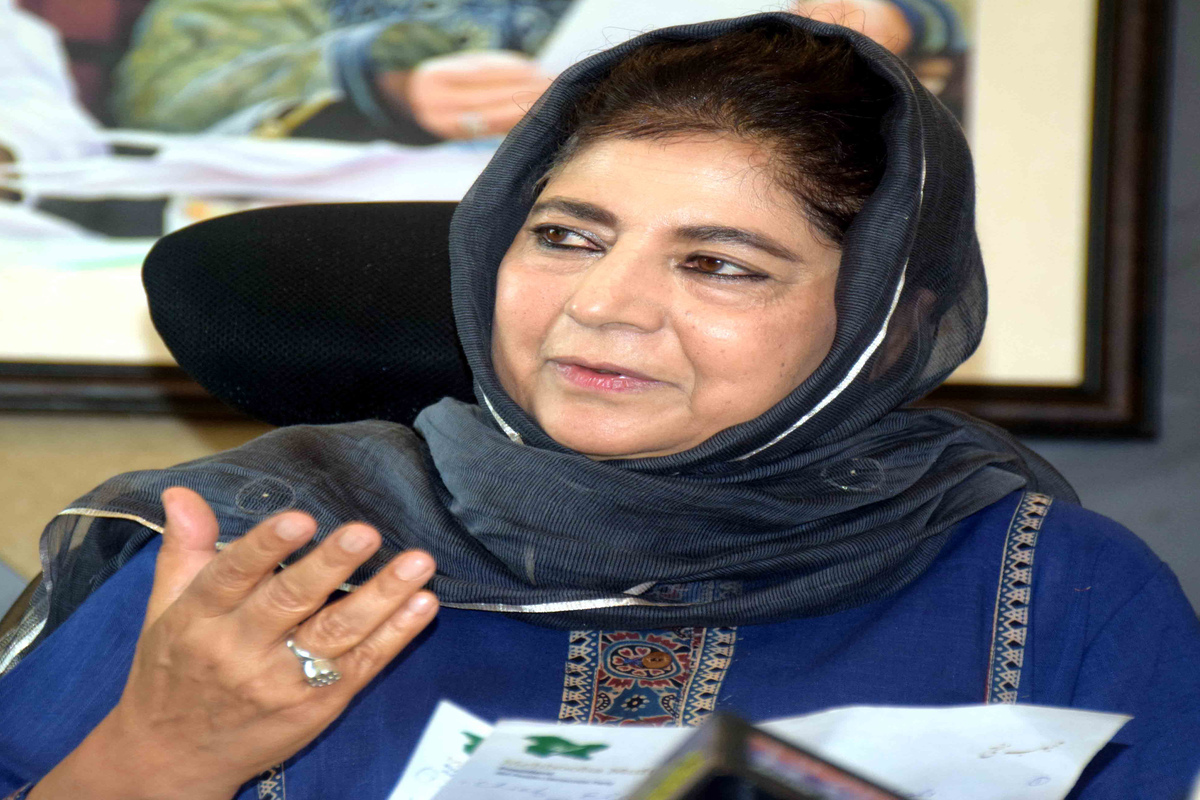Hailing the order of the Supreme Court that the latest affidavit of the Central government shall not be relied upon to argue on the aspects of constitutionality of Article 370, PDP leader Mehbooba Mufti said the decision of the apex court vindicates that the affidavit doesn’t have a logical explanation to justify “illegal abrogation” of Article 370.
Reacting to the order of the constitution bench led by Chief Justice of India Justice D Y Chandrachud, Mehbooba wrote on Twitter, “Having said that there are legitimate apprehensions about why SC has taken up the Article 370 with such alacrity after their visit to Kashmir. After remaining silent for four years the decision to hear the case on a daily basis does evoke misgivings. Hope the constitution of this country by which the judiciary swears is not sacrificed at the altar of power to satisfy the collective conscience of people who know little about the matter”.
Advertisement
Earlier, in a sharp reaction to the centre’s claim of stability and progress in Jammu and Kashmir following the abrogation of Article 370, PDP chief Mehbooba Mufti said the Centre’s defence lacks logic to back its decision of the “illegal and unconstitutional” abrogation of Article 370.
The Centre had claimed normalcy and development in J&K in the affidavit it has filed in the Supreme Court that is set to hear the bunch of petitions challenging abrogation of Article 370.
In a hard-hitting statement, Mehbooba said, “Brute majority was used to subvert the Indian constitution that extended guarantees to the people of J&K and government of India (GOI) also violated earlier rulings of Hon’ble SC which held that only J&K’s constituent assembly could recommend the removal of Article 370 to the President of India. Drum beating about an enforced silence and so-called grassroots democracy cannot be used to justify constitutional hara-kiri”, she added.
National Conference leader Omar Abdullah in a tweet said; “These are definitely political arguments the BJP/Union Govt can make to sell their decision to the voter but they are not legal arguments. The entire case in the SC is about the illegality & unconstitutionality of what was done on 5th Aug 2019, not whether the Govt has a strong enough political case”.
J&K Peoples’ Conference President Sajad Gani Lone said that one of the biggest challenges facing the institution of judiciary is how they deal with Article 370 cases. He emphasized that the role of the apex court is not to pass judgment on whether the abrogation of Article 370 was beneficial or detrimental to J&K but the court’s duty lies in determining the legality of the abrogation.
“Per se the affidavit filed by the Central government focuses on issues post abrogation. What will eventually be discussed in the court is the legal pathway to abrogation not the so-called perceived political or law and order benefits post abrogation. Whether abrogation of Article 370 is good or bad for J&K is not what the Apex court has to decide. They have to decide whether it was good or bad in law”, Lone said in a statement.
Lone further said that Article 370, in essence a form of federalism and a power sharing arrangement, has been slandered and defamed beyond recognition. He however asserted that clamour for federalism will progressively gain momentum over time.
“Mark my words. Clamour for federalism will grow every passing day. The biggest threats facing the country today are the attacks on its federal structure—-Slow march of the central government and the trespass on to the power of the state governments. Loose Federalism is a reality and will be the most talked about political concept across the world in the coming decades”, he added.











